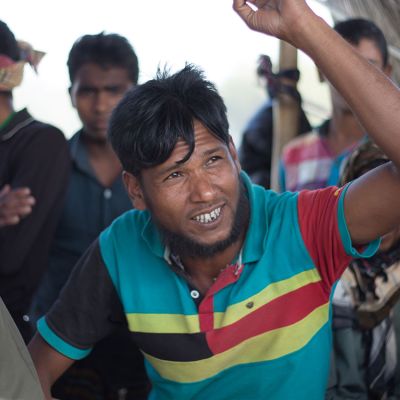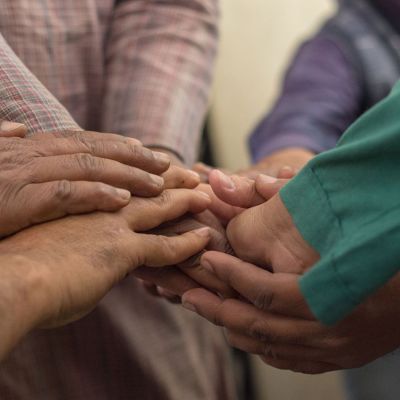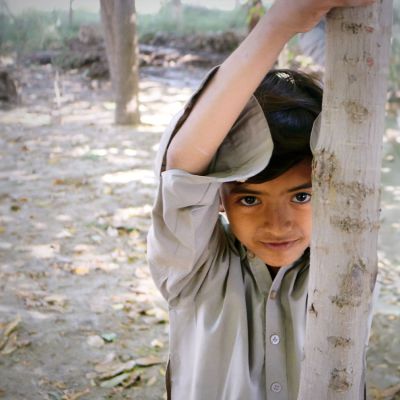Written by Clara Chiu (Head of Partnership Development)
Over the past 30 years, CEDAR has continued to support poverty alleviation programmes in more than 40 countries worldwide to transform poor communities and improve the lives of the poor from the vastness of God’s grace. However, apart from the guidance of the Lord, human responsibility is also indispensable. To present the best to the Lord, CEDAR has been careful with the initiation of the projects. At the same time, we are entrusted by our donors to make the best use of our resources so that we can fulfil our duty of helping the poor and the needy worthwhile.
Two Main Project Categories: Humanitarian Relief and Community Development
CEDAR’s projects are divided into two main categories: Humanitarian Relief and Community Development. The former assists the communities affected by sudden natural or man-made disasters. This kind of programme focuses on providing immediate assistance to the victims, such as distributing supplies. The latter enhances the capabilities of the poor and the community through training, provision of resources, mobilisation of social participation, etc., to enable them to become self-reliant.
When establishing a humanitarian relief project, making timely decisions is of utmost importance. In the face of a sudden disaster, the lives of the affected community are at stake, and we must assist as soon as possible. We have cultivated strong relationships with several trusted and seasoned partners with whom we have a tacit understanding. We work closely with our partners every time there is a disaster. They promptly inform us of the needs of the affected areas, allowing us to assess the response plan and approve the funding swiftly.
Contrary to humanitarian programmes, community development focuses not on speed but on long-term effectiveness. When we address issues like child labour or child marriage, it is essential to help parents in impoverished families understand the importance of education for their children. They should be encouraged not to let their children drop out of school to work or be sold while acknowledging these families’ pressure. Enhancing their livelihood skills and cultivating saving habits are equally important. When they have a certain economic foundation, children will have the opportunity for education. Poverty is a complex issue that cannot be solved overnight. Therefore, community development projects typically span a significant duration. In fact, several of CEDAR’s community programmes have been in operation for over a decade.
The longer the support duration and the more resources allocated, the more carefully we need to plan the programme’s content. Before launching a new community development project, CEDAR’s colleagues will first examine the situation of the target areas, including the level of poverty, cultural practices, religious dynamics and local institutions. Apart from understanding the situation in the country according to the research data and insights from our partners, colleagues also visit the target to observe their living conditions and the involvement of churches in the community to collect first-hand information.
Of course, CEDAR’s resources and organisational strategies are all factors to consider. As a small-scale organisation with limited resources, CEDAR cannot address all poverty-related issues, and therefore, we must act strategically in our approach.
As the approach of CEDAR is to build up the ability of the communities to help others as well as themselves, purely hardware-related expenses such as building schools or houses, as well as administrative costs such as partner salaries, are not within CEDAR’s consideration. We hope to focus our resources on enhancing community development work. Additionally, if our partners request to increase funding or wish to launch new projects, we will first assist them in seeking other local resources or funding before considering a response. This approach prevents CEDAR from becoming the sole or major source of financing for our partners, thereby avoiding dependency and preserving partners’ self-reliance.
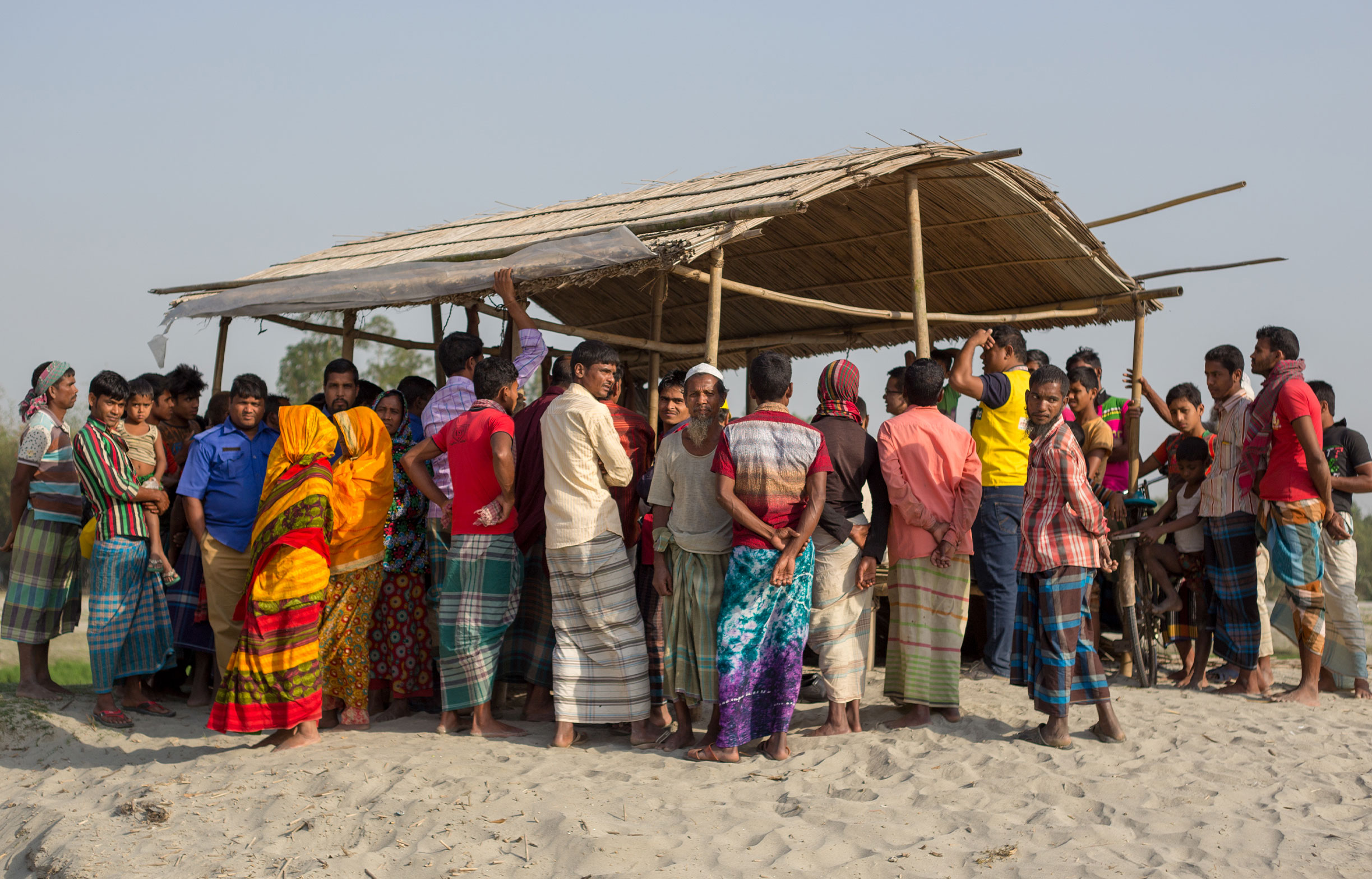
Over the years, CEDAR has been carrying out poverty alleviation and disaster relief programmes in accordance with the above beliefs and standards. However, the Lord’s ways are higher than ours, and He may use the ‘Macedonian Call’ to lead us to make changes.
‘When they came to the border of Mysia, they tried to enter Bithynia, but the Spirit of Jesus would not allow them to. So they passed by Mysia and went down to Troas. During the night, Paul had a vision of a man of Macedonia standing and begging him, “Come over to Macedonia and help us.” After Paul had seen the vision, we got ready at once to leave for Macedonia, concluding that God had called us to preach the gospel to them.’ (Acts 16:7-10)
Over the years, CEDAR has been carrying out poverty alleviation and disaster relief programmes in accordance with the above beliefs and standards. However, the Lord’s ways are higher than ours, and He may use the ‘Macedonian Call’ to lead us to make changes.
When they came to the border of Mysia, they tried to enter Bithynia, but the Spirit of Jesus would not allow them to. So they passed by Mysia and went down to Troas. During the night, Paul had a vision of a man of Macedonia standing and begging him, ‘Come over to Macedonia and help us.’ After Paul had seen the vision, we got ready at once to leave for Macedonia, concluding that God had called us to preach the gospel to them.
Acts 16:7-10
‘Macedonian Call’ is the Lord’s way of transforming His servants’ visions, and He used it to alter Paul’s missionary strategy. CEDAR has received many different ‘Macedonian Calls’ over the years. Despite the strategy of the organisation and the professional judgement of staff, we are still willing to listen attentively and submit to the Lord’s leading to change our plans. I want to share with you one of the experiences of the ‘Afghanistan Call’.
Changes in Afghanistan’s Ministry
CEDAR has been serving in Afghanistan for many years. Still, due to the unstable situation, we have been unable to send staff to inspect projects and visit beneficiaries on-site. Instead, we have been communicating remotely with our partners and relying on their reports every six months to monitor projects. Because of this, we have been praying and seeking the Lord’s guidance on whether CEDAR should withdraw from the country and relocate resources to neighbouring countries. The Lord answered our prayers through the response of a partner colleague’s personal ministry: an Indian co-worker whom we have been working with for a long time went to Afghanistan to serve as the Executive Director of our partner organisation — our years of collaboration and mutual trust, coupled with the colleague’s experience and network in relief work, made us more confident about our work in Afghanistan. We decided to continue to serve the poor in that country.
By May 2021, the United States and NATO forces withdrew from Afghanistan, and the Taliban quickly sei ed control of all major cities, leaving the country in dire straits. Tens of thousands of people were forced to flee and seek refuge elsewhere. In June, our partner requested funding from CEDAR to initiate relief efforts, and we responded promptly. As the situation became more critical, the partner submitted a second request for additional support, and CEDAR once again allocated funds. By August, the deadline for the completion of the US military withdrawal was approaching. At the time, the situation became increasingly dire, as many countries urged their citizens to evacuate Afghanistan immediately. Under the Taliban regime, CEDAR’s partner was in a perilous circumstance because it is a Christian organisation. Nevertheless, the Indian Executive Director remained steadfast and continued his service without fear. He evacuated Afghanistan only upon the request of the organisation’s adviser.
Afghan Co-Workers’ Call
In November, we received an urgent request from the Executive Director seeking CEDAR’s assistance covering staff salaries. With supporters from the West unable to provide assistance, our partner has not had enough cash to pay wages for two months. Many colleagues were the breadwinners of their families. If the salary arrears continued, they would have no choice but to leave their jobs, and the relief projects would have to be terminated without colleagues to carry them out.
CEDAR has always adhered to its policy of not subsidising partner wages. At that time, we were in a dilemma – we understood their needs but were hesitant to break our usual practice. For this matter, CEDAR’s staff prayed together and eventually obeyed the Lord’s call to allocate funds to support their salaries. Subsequently, we received feedback from the partner that if it had not been for the timely support from CEDAR, their families would have been left without livelihoods. They would have not only lacked food and winter fuel but might have also lost hope in life.
I am deeply thankful that we allocated funds to support partner salaries in accordance with the Lord’s guidance before initiating fundraising for this purpose. However, we were pleasantly surprised to receive numerous responses from supporters. This was unexpected, given that voices in the community suggested that many donors prefer organisations to allocate funds towards the underprivileged rather than staff wages. The positive response from supporters gives us confidence that, in fulfilment of His will, the Lord will ensure His ‘Macedonian Call’ reaches various people.
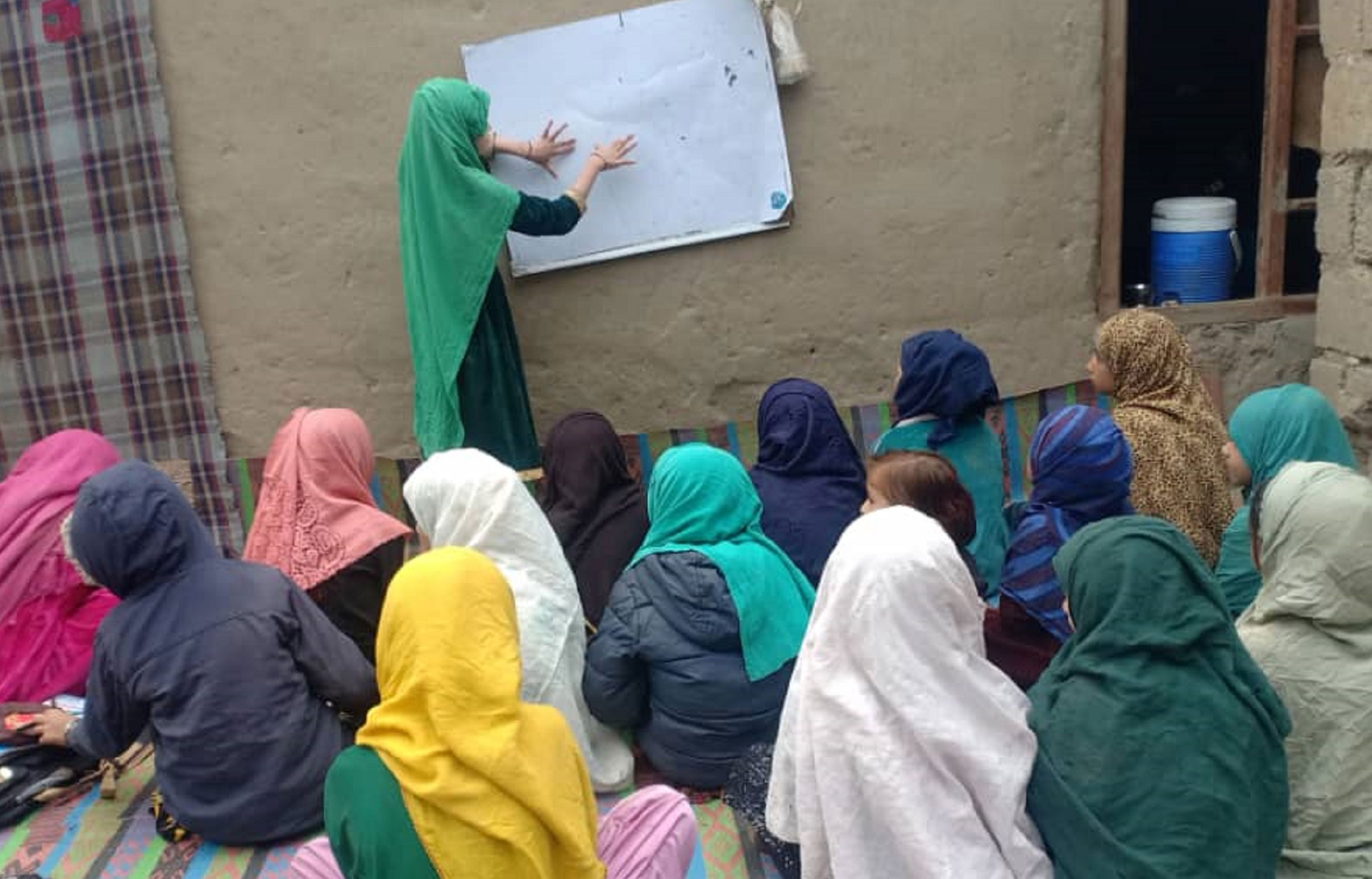
Responding to the Lord’s Touch
Paul’s willingness to obey and respond to the ‘Macedonian Call’ resulted in the spread of the Gospel to Europe. Similarly, CEDAR’s response to the ‘Afghanistan Call’ has enabled its partner to continue the ministry in the country to this day, providing educational opportunities for disabled and ethnic minority children in Afghanistan.
Our assistance was just a drop in the ocean. Still, the courage and perseverance of our Afghan partner has led them to remain steadfast in their positions, serving those in need in the face of upheaval in their homeland and extremely challenging circumstances. I believe that, like us, they have responded to the cries of the poor and obeyed the Lord’s call by willingly setting aside their own desires to serve others.
ARTICLES OF THIS ISSUE
Written by Clara Chiu (Head of Partnership Development) Over the past 30 years, CEDAR has continued to support poverty…
Written by Tony Chan (Senior Communications Officer) Scriptures reading: 1 Corinthians 12:12-26 12Just as a body, thou…
Written by Clara Chiu (Head of Partnership Development) I know Queenie through a marathon event. This year, CEDAR has …
Written by Ken Wong (Communications Officer) This year, CEDAR Fund participated in the ‘Marathon Charity Programme’ to…



